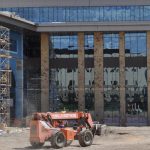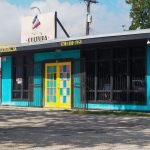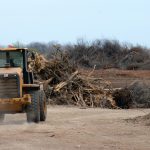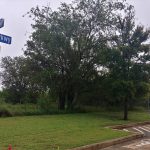Mission area residents respond to encroaching development
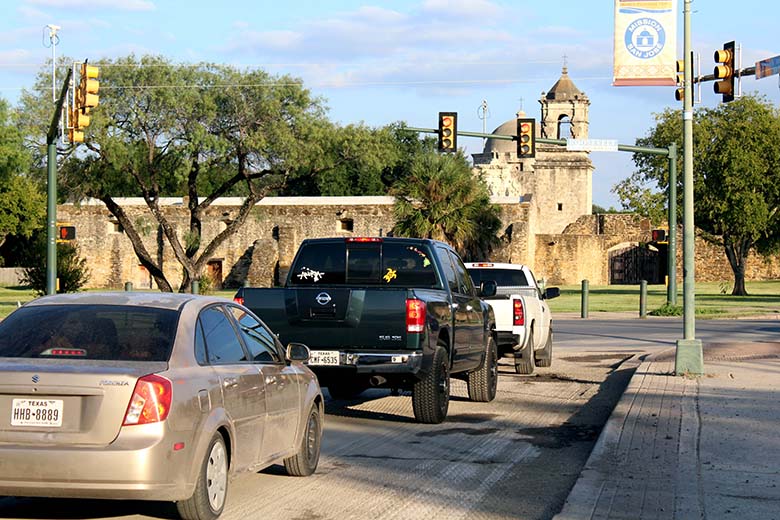
The San Antonio Missions were designated as a World Heritage site in 2015. Photo by Deidre Carrillo
East Pyron Avenue is a rural road that runs from the San Antonio Missions National Historical Park and ends at the bank of the San Antonio River.
Visitors who drive down that road, which is protected by Mission Protection Overlay District #2, will come across a row of signs affixed to fences in front of residents’ homes.
The signs read: “No apartments next to our missions!”
[metaslider id=27362]
Prisciliana Cabral, who owns a one-story home on East Pyron Avenue, walked outside one morning and met with reporters to talk about development in the area and her family’s connection to the neighborhood.
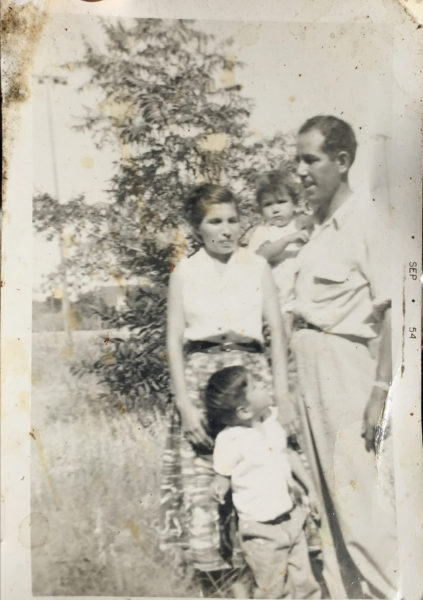
In 1954, Jose Cabral, Prisciliana’s father, was diagnosed with Leukemia. He learned he only had a few years left to live, and immediately thought about his grandchildren. He decided to get a permit to build a house near the Missions. In 1959, he passed away and later that year the house was completed by his brother, Antonio Cabral. The house remained in the family.
Not much has changed since 1954. Until recently.
Growth and development surrounding the San Antonio Missions may bring about progress, but not everyone in the community is satisfied.
Infrastructure improvements, like sidewalks, are a welcome change for pedestrians who walk the neighborhood, but have caused problems for some, according to residents.
“We ended up with sidewalks, and of course that kind of messed things up because when it rains, it floods our house,” Cabral said.
In 2015, landowners L&H Packing Co., along with 210 Developers, lobbied to build six,
three-story apartments at 131 Huizar Rd., across from the visitors section at Mission San Jose.
Theresa Ybañez, an activist, artist and resident of the Mission San Jose neighborhood, responded by creating a petition. She gave the Mission residents a voice and, with the backing of District 3 Councilwoman Rebecca Viagran, L&H’s development plans were subsequently rejected.
Ybañez echoes the concerns of residents who want to see growth and expanded revenue for the city but fear negative ramifications on the generational households and the Missions.
San Antonio, and particularly the South Side, is poised for growth because of the Mission’s geographical location. Though the Missions have been a tourism checkpoint previous to the 2015 World Heritage Centre designation, the new spotlight has brought a new focus for development. The abundance of open land in the area only adds to the attraction of growth and development in the area.
Ybañez, president of the Mission San Jose Neighborhood Association (MSJNA), is filling a pair of shoes that have only been worn twice before her since the association launched in 1995. Composed of six officers, members of MSJNA are all volunteers and are all residents of the area.
Ybañez said that smart development is imperative for the South Side to grow as a sustainable community with more opportunities for the already existing businesses and attractions.
“There should be development that does not displace legacy businesses or families around the missions.”
Ybañez also recognizes the importance of internal growth within the area.
“We like community commercial, we love community commercial,” she said in reference to Nicha’s Comida Mexicana, an authentic Tex-Mex restaurant on Roosevelt and East White Avenue, which purchased a new lot to expand their business in the heart of the South side.
With the eventual closure of the original Nicha’s Comida Mexicana, Ybañez hopes they can open a new restaurant that offers a diversity of food not currently found in that area.
Community Advocacy
MSJNA, along with other community groups, strive to protect the best interests of the San Jose Mission area through advocacy.
“It’s also (about) protecting and giving voice to those people who don’t know how to speak up for themselves,” said Ybañez.
In the face of inevitable growth, the association does its best to remain objective while watching out for neighborhood interests.
“I think our mission should be recognized, but what I don’t like is when developers come in as in the past and they tell us they are doing good for us, when in fact that’s not what their doing,” Ybañez said.
One way the association has been able to evolve from reactive to proactive is to keep an eye on permit requests.
Knowing the permit number for a project allows anyone in the neighborhood to learn the status of a given project by searching for it in the city of San Antonio’s website. This has given neighborhood associations a platform to act as a watchdog of sorts over their beloved neighborhoods.
That collaboration has been transparent thus far with the continued cooperation of South Side natives Viagran and Colleen Swain, the city’s first world heritage director.
Ybañez says she enjoys working with Swain because of her persistence as a leader.
“She is getting a lot of things happening with landuse and zoning, that we’ve been asking for for years,” Ybañez said.
Father James Jared Galvan of Mission San Juan Capistrano has a unique perspective. Born in Scotland, Galvan got the opportunity to travel through Europe and marveled at the way they maintain their history.
“I see the value in keeping historical things the way they are for the future without doing too much damage to the environment around them,” Galvan said.
Galvan understands the frustrations that accompany change, but believes the benefit of time will heal those wounds.
“They sacrifice one thing for progress in another,” Galvan said.
The community wants a smart growth strategy which centers around protecting the Missions, protecting the people who already live in the community, and keeping an environmentally friendly atmosphere.
Growth does not always equal progress. In this case, hopefully it will, “But the people that it impacts is only us,” Cabral said.
Ybañez admits that she didn’t exactly know what she was getting into as president of the association, but she believes her stubbornness and persistence are necessary in the fight for her community.
“I’m really loving it because I feel like I make a difference and that difference is not about me,” Ybañez said. “The difference is about my whole community having a healthier atmosphere and raising the quality of life, not only just for those who have but for those who have not.”
